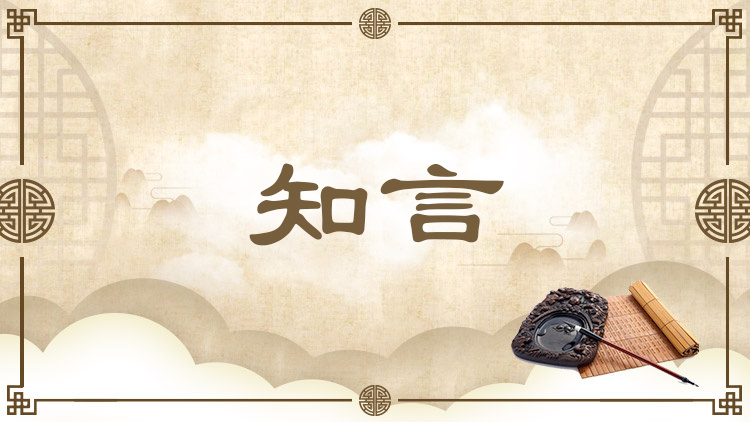知言 Discerning Statements

察知言辞的真意。早期儒家的《论语》《孟子》等文献中都提到“知言”的观念。儒家认为,言辞是人们表达和交流的中介。但由于种种原因,很多时候言辞并不能准确、真实、完整地传达意义。因此儒家强调要善于辨察言辞偏离真意的原因,并在此基础之上进一步探究言辞的真意。
This term means to discern the true meaning of statements. This concept is mentioned in early Confucian classics such as The Analects and Mencius. Confucianism regarded statements as the vehicle through which people express themselves and communicate with others. However, for various reasons, statements often cannot accurately, faithfully or fully convey the true meaning that was intended to convey. Hence Confucianism emphasized the need to discern statements to find out why they deviated from the true meaning and further explore them.
引例 Citations:
◎不知言,无以知人也。(《论语·尧曰》)
不善于分辨别人的话,就不能真正地了解他。
If you do not discern statements of others, you cannot understand them. (The Analects)
◎“何谓知言?”曰:“诐(bì)辞知其所蔽,淫辞知其所陷,邪辞知其所离,遁辞知其所穷。”(《孟子·公孙丑上》)
公孙丑问:“什么是知言?”孟子说:“偏颇的言辞知道它片面的地方,浮夸的言辞知道它失实的地方,邪异的言辞知道它偏离正道的地方,搪塞的言辞知道它理屈词穷的地方。”
Gongsun Chou asked, "What does discerning statements mean?" Mencius said, "Discerning statements enables one to know how one-sided statements are biased, exaggerations are untrue, heresy is deviated from truth and poor defense is unjustified." (Mencius)
推荐:教育部 国家语委
供稿:北京外国语大学 外语教学与研究出版社
责任编辑:钱耐安





